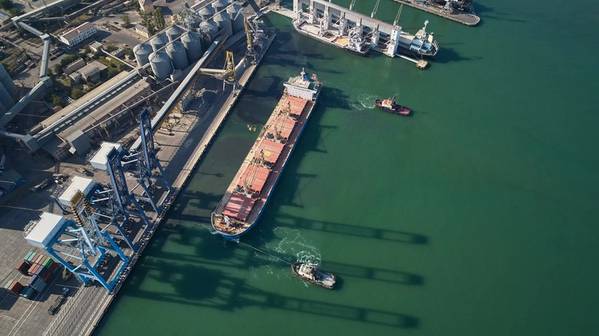
The Baltic Exchange's main sea freight index fell on Tuesday weighed by falling rates for capesize vessels, while the panamax segment was flat following eight straight sessions of gains.
The Baltic dry index, which tracks rates for ships ferrying dry bulk commodities and reflects rates for capesize, panamax and supramax vessels, fell 50 points, or about 2.8%, to 1,742.
The Baltic capesize index lost 169 points, or 5.2%, to 3,082, its lowest since June 17.
Average daily earnings for capesizes, which typically transport cargoes of 170,000 tonnes to 180,000 tonnes, including iron ore and coal, was down by $1,402 at $25,562.
Rising iron ore demand from China, as the world's second-largest economy opened up for business after months-long coronavirus-led lockdowns, has helped the capesize index gain 58% so far this year.
The panamax index was flat at 1,597.
Average daily earnings for panamaxes, which usually carry coal or grain cargoes of about 60,000 tonnes to 70,000 tonnes, fell by a dollar to $14,375.
However, the supramax index rose 19 points, or 2.2%, to 875.
(Reporting by Diptendu Lahiri; Editing by Amy Caren Daniel)



